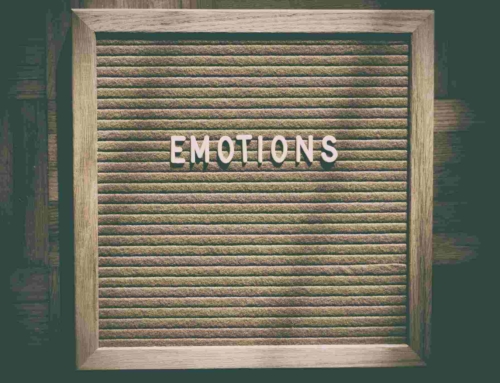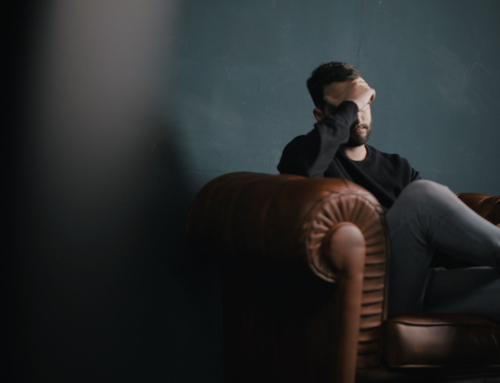Part 3 of a 4-Part Series
 Depression is a complex state, with many potential contributors and remedies. In my previous articles, I discussed the role of nutrition and the use of herbs and supplements in mitigating the symptoms of depression. In this third article in my series on how to combat depression naturally, I turn my attention to lifestyle choices that can greatly impact mood.
Depression is a complex state, with many potential contributors and remedies. In my previous articles, I discussed the role of nutrition and the use of herbs and supplements in mitigating the symptoms of depression. In this third article in my series on how to combat depression naturally, I turn my attention to lifestyle choices that can greatly impact mood.
Sleep and Depression
The role of sleep in depression can be something of a chicken-egg conundrum. Depression can lead to poor sleep, and a lack of adequate sleep can also perpetuate depression. Insomniacs are ten times more likely to become depressed than people who sleep well. Those who experience trouble sleeping at night typically either have difficulty falling asleep or staying asleep, or they feel unrefreshed after sleeping, or feel drowsy during the day. There are a variety of reasons for why a good night’s sleep seems so elusive. These include breathing problems (sleep apnea), chronic pain, napping during the day, disruptive work schedules, getting up with a baby, too much caffeine, side-effects of medication, evening exercise workouts, noise, light in the room, health problems, worry, stress, eating too much or too late, staying up too late, and an inconsistent sleep schedule. Being tired all the time makes most people feel pretty lousy and can lead to a bleak outlook on life. On the flipside, feeling well-rested can put a spring into your step and engender positivity. Regardless of what the challenges are, it is up to you to prioritize sleep and to make every effort to reduce or eliminate hindrances.
Prioritize Recreation
You know the saying, “All work and no play makes Jack a dull boy.” One might add, “Or a depressed boy.” Regular participation in enjoyable activities gives you something to look forward to, and reduces isolation and loneliness if it involves others. Let’s face it, the daily grind can sometimes be unexciting, unpleasant, burdensome, or stressful. Without the interjection of positive experiences, one’s mood can plummet to a place of discontent, boredom, anger, or despair. To ward off the blues, make having fun a part of your regular self-care regimen.
Maintain Social Connection
While it is true that lonely people can become depressed, one of the first signs of depression is often social withdrawal. When people feel down and subsequently avoid contact with family, friends, or the outside world in general, this exacerbates depression and turns into a vicious cycle. The antidote is to do the opposite of what you feel like doing. Make a list of the people who are important to you and schedule get-togethers or activities with them, resisting the urge to become isolated. Although you may initially feel as if you are dragging a bag of bricks to go and see someone, afterward you will be glad that you did.
 Spirituality Keeps You Grounded
Spirituality Keeps You Grounded
“Why, my soul, are you downcast? Why so disturbed within me? Put your hope in God, for I will yet praise him, my Savior and my God” (Psalm 43:5). We are created as spiritual beings with an innate hunger for relationship with our Creator. Without Him in our lives, we cannot be truly at peace and satisfied. As our guidebook for life, the Bible is full of encouragement to turn to the Lord in times of distress and despair, for He is the true source of peace and the “Lifter of our head.” Spending time daily with God in worship, prayer, study, and meditation helps to ground us and remind us that we are not alone – our Comforter is very near.
One of the biggest contributors to a depressed mood is rumination – thinking over and over and over about things that are toxic to your soul and that bring you down. God instructs us to meditate on His Word day and night so that our human thinking may be elevated to His thinking. We are not to allow ourselves to be victimized by our “stinking thinking” or to dwell haphazardly on whatever comes up in our minds. On the contrary, we are taught to “take every thought captive to make it obedient to Christ” (2 Corinthians 10:5). How exactly can we do that? The answer is: “Whatever is true, whatever is noble, whatever is right, whatever is pure, whatever is lovely, whatever is admirable – if anything is excellent or praiseworthy – think about such things” (Philippians 4:8). We are called to think intentionally rather than to be a passive or indiscriminate recipient of thoughts. Romans 8:6 explains that to be spiritually minded brings peace, or a state of tranquility, wholeness, safety, and harmony. This sounds like the opposite of depression to me.
Cut the Caffeine
First of all, as I mentioned previously, caffeine can negatively impact sleep, and sleep-deprived people are more prone to depression. Not surprisingly, research reveals that depressed people tend to take in high amounts of caffeine (for instance, seven cups of coffee or more per day) and moderate to high coffee consumers frequently score higher on depression scales than do low users. Other studies indicate that a caffeine-sugar combo is more disastrous for depression than either consumed by itself. Caffeine is known to wreak havoc on the body’s ability to regulate blood sugar, and treats like a soda, sweet tea, or a double-caramel machiatto can translate into a blood-sugar roller coaster that taxes the brain. Many people successfully enjoy the caffeine equivalent of one to two cups of coffee without serious consequences, but some are more sensitive than others. If you are a regular caffeine consumer and also struggle with depression and don’t know why, consider eliminating caffeine and see whether you experience any improvement in your mood. However, be warned that you should cut back slowly. If your body is accustomed to caffeine, stopping abruptly can induce depression until your body adjusts.
 Exercise to Combat Depression
Exercise to Combat Depression
There is enormous clinical and anecdotal support for exercise as a therapeutic tool in treating depression. Unfortunately, exercise is also often overlooked or underutilized. One reason for this is that folks suffering from depression, perhaps more than others, don’t feel like exercising. However, depression usually jerks the slats out of feeling like doing much of anything. There is a curious phenomenon regarding exercise: The less you do it the less you want to, and the more you do it the more you want to. In order to reap the psychological benefits of exercise, you need to press past your inner resistance. The reason why exercise is an effective antidote for depression is because it causes the release of chemicals called endorphins in the brain. Endorphins reduce sensitivity to pain, act as natural sedatives, and stimulate positive feelings. In addition, exercise works to reduce stress and anxiety, improve sleep, enhance self-esteem, and contributes to overall physical health in a myriad of ways. Who doesn’t want this?
Find Your Purpose in Life
“For we are his workmanship, created in Christ Jesus for good works, which God prepared beforehand, that we should walk in them” (Ephesians 2:10). In the creation account in the book of Genesis, we see that God placed Adam and Eve in the garden to work it and to take care of it. Working and having meaningful things to do is a part of our hard-wiring. A lack of a sense of purpose can lead to depression, and depression typically spirals into a loss of direction and motivation. Many people, particularly men, derive a portion of their identity from the work they do. This is why the loss of a job or retirement can result in sadness, despair, and health problems. In fact, studies on retirement indicate that men who retire early tend to die earlier than those who stay in the workforce longer.
Sometimes the purpose or “call” that God has for us is related to our job and sometimes it isn’t. When the meaning of our work does not involve much more than putting a roof over our head and food on the table, then a sense of purpose may not come until we find it elsewhere. If you don’t already know what your purpose is or was, then consider needs and causes outside of yourself that you care about, and find a way to get involved. Focusing on the needs of others and laboring to make the world a better place can get your mind off your troubles and give you some perspective. What’s more, it just plain feels good to be productive and to serve. “In everything I showed you [by example] that by working hard in this way you must help the weak and remember the words of the Lord Jesus, that He Himself said, ‘It is more blessed [and brings greater joy] to give than to receive’” (Acts 20:35 AMP).
 Live Authentically
Live Authentically
Authenticity means being real. Even if you choose not to wear it on your sleeve, at least be honest with yourself and with God about what you want, think, and feel. Don’t deny, stuff, numb, minimize, or dramatize. Take an inventory of your values and live in harmony with them. Eliminate contradictions. For instance, if you are in a relationship that you know you shouldn’t be in, get out. If you are abusing a substance in order to cope with life, get help. If you’re doing anything you shouldn’t be doing, or not doing something you should, then work diligently to correct it. The problem with violating your own conscience about something is that you need to perform mental acrobats in order to live with yourself. And this can lead to anxiety, depression, and other mental health problems. There is no better feeling in the world than to lay your head down at night knowing that you are right with God and at peace with your own self.
Christian Counseling in the Struggle against Depression
As a Christian counselor, I have learned that people who struggle with depression can certainly benefit from a “two heads are better than one” approach to finding effective solutions. Depression tends to progressively erode one’s hope that anything will really help. A Christian counselor will encourage you and is a great resource for creative tools that are compatible with your faith. If you know or think you may be depressed, don’t just go it alone. Call me today, and let’s put our heads together.
Resources
National Sleep Foundation: https://sleepfoundation.org
WebMD: http://www.webmd.com/
Bible Study Tools: http://www.biblestudytools.com/dictionary/peace/
Mayo Clinic: http://www.mayoclinic.org/
Mind Body Green: http://www.mindbodygreen.com/0-11425/can-caffeine-worsen-depression-and-anxiety.html
Photos
“Uplifting,” courtesy of zool.com.cn, All-free-download.com, CC0 Public Domain License; “Spirituality Grounds You” by permission by Donna M. Cowan; Active and Fun,” courtesy of Pete Bellis, Flickr CreativeCommons (CC BY 2.0); “Campfire Social,” courtesy of Unsplash, Pixabay.com, CC0 Public Domain License









